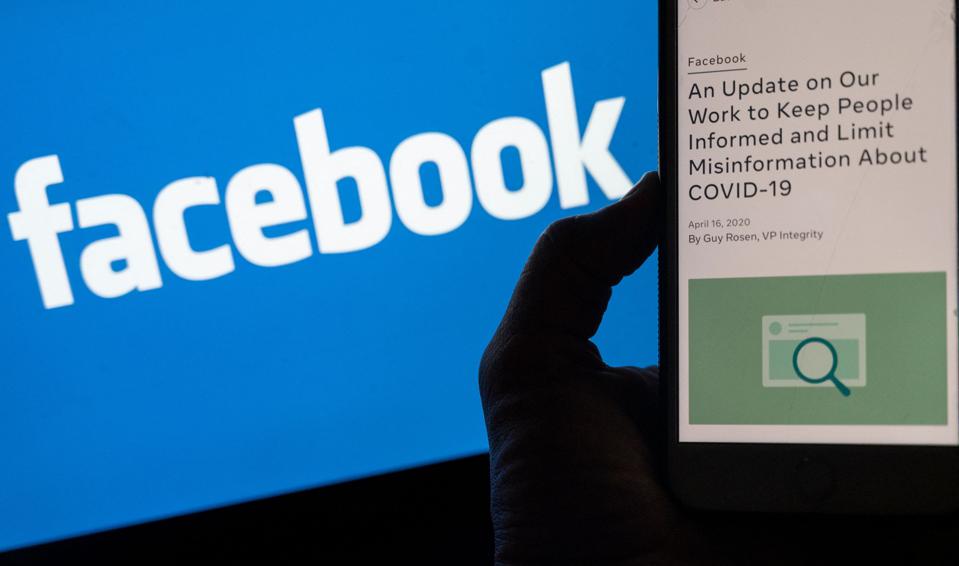Covid-19 Misinformation Bots Targeted Facebook Groups, Study Finds
Topline
A flawed and misinterpreted study on mask effectiveness last year sparked automated software bots of unknown origin to target Facebook groups with conspiracy theories and misinformation, according to a new study.

Automated software bots spread misinformation about mask-wearing on Facebook groups, according to a … [+]
AFP via Getty Images
Key Facts
Researchers analyzed whether bots or people were making posts to Facebook groups sharing links to a controversial study on the effectiveness of masks in the days following its publication last November, according to a research letter published Monday in JAMA Internal Medicine.
The researchers noted that when a link appeared multiple times in different groups within seconds of each other, that was evidence the posts were automated.
Groups with the automated posts were more than twice as likely to say that masks were harmful or share a conspiracy theory, the letter stated.
In Facebook groups with the least evidence of bots, more than 70% of posts claimed neither that masks were harmful nor that they were part of a conspiracy.
Key Background
The controversial mask study, which concluded that people who wore them were not much more protected against the virus, was seized on by opponents of mask mandates who falsely promoted the study as proof that mask-wearing was harmful. The study, led by Danish cardiologists, was criticized for the high number of people who quit early or did not follow mask wearing rules, as well as for studying people in an area with low spread of the virus.
Crucial Quote
“[B]ots—like those used by Russian agents during the 2016 American presidential election—have been overlooked as a source of COVID-19 misinformation,” said John W. Ayers, the study’s lead author and a professor at the University of California, San Diego, in a press release. Russia’s intelligence agencies have helped push misinformation about the pandemic on social media and English-language websites, according to reports from American intelligence agencies. Researchers could not prove for certain, however, who was behind the misinformation or what tools they used.
Further Reading
Lead Researcher Behind Controversial Danish Study Says You Should Still Wear A Mask (Forbes)


